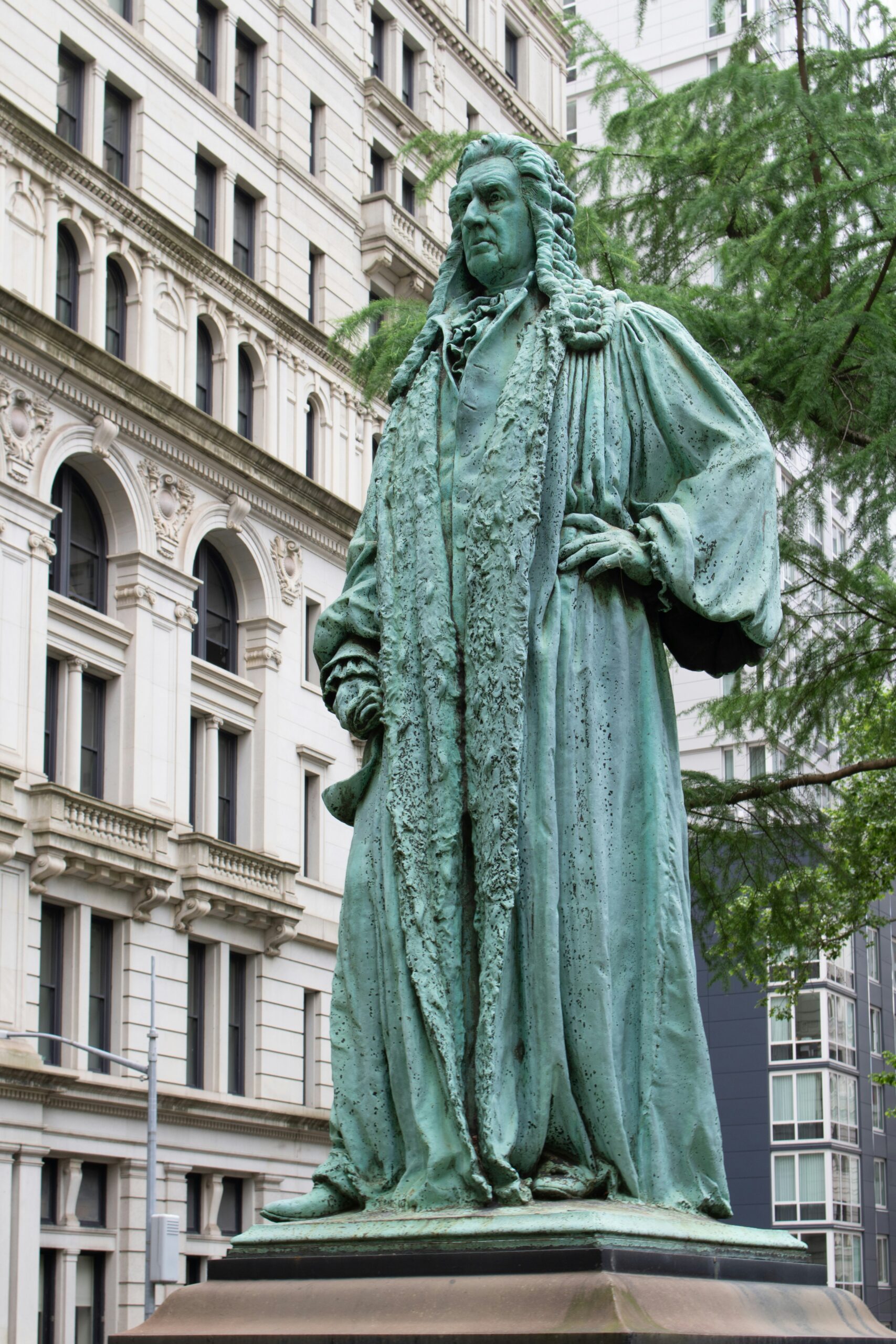
Photo by <a href="https://unsplash.com/@tengyart" rel="nofollow">Олег Мороз</a> on <a href="https://unsplash.com/?utm_source=hostinger&utm_medium=referral" rel="nofollow">Unsplash</a>
Introduction to P. V. Narasimha Rao
P. V. Narasimha Rao, born on June 28, 1921, in Karimnagar, Telangana, is regarded as one of India’s most impactful leaders, serving as the Prime Minister from 1991 to 1996. His tenure came at a time when India faced significant economic challenges, prompting the need for substantial reform and visionary leadership. As a politician and lawyer, Rao received his early education in his hometown before pursuing higher education at the University of Bombay, where he earned degrees in law and arts.
His political journey began in the 1940s, initially influenced by the Indian independence movement. Rao was an active participant in the struggle against colonial rule, aligning himself with the Indian National Congress. Throughout his life, he held various important positions within the Congress party, which laid the foundation for his ascent to the role of Prime Minister. Elected as a Member of Parliament, he served in various capacities, including Minister of Defence and Minister of Home Affairs, showcasing his versatility and dedication to public service.
As Prime Minister, Rao was instrumental in ushering in notable economic reforms, which transitioned India from a largely closed economy to one that embraced liberalization and globalization. His policies focused on reducing state control, deregulating industries, and attracting foreign investments, which fostered rapid economic growth and development. Furthermore, he played a crucial role in steering the country through political complexities, maintaining stability during a transformative era.
P. V. Narasimha Rao’s legacy goes beyond his economic reforms; his intellectual approach, diplomatic strategies, and commitment to modernizing India positioned him as a visionary leader. His life and contributions continue to be a subject of analysis and admiration, paving the way for future discussions, including astrological perspectives on his remarkable journey.
Understanding Astrology and Its Relevance
Astrology, a system that dates back thousands of years, is founded on the belief that the positions and movements of celestial bodies can influence human affairs and natural phenomena. By examining these cosmic patterns, astrologers seek to gain deeper insights into individual personalities, life events, and their potential outcomes. The practice of astrology operates on the principle that the positions of the planets and stars at the time of a person’s birth can reveal significant information about their character traits, strengths, weaknesses, and challenges they may encounter throughout their life.
At its core, astrology analyzes the twelve zodiac signs, planets, and their aspects in relation to the twelve houses of an astrological chart. Each sign is associated with specific personality traits and tendencies, shaping an individual’s responses to life events. For instance, the positioning of planets can affect decision-making, leadership qualities, and interpersonal dynamics. In this way, astrology serves as a tool for understanding how a person’s astrological makeup might influence their approach to challenges, opportunities, and pivotal moments.
Furthermore, astrology is not merely about predicting the future; it provides a framework for understanding the underlying motivations and inclinations that drive behavior. This relevance becomes particularly pronounced in the context of leadership. Effective leaders often exhibit a unique blend of vision, resilience, and adaptability, traits that can be illuminated through astrological analysis. By examining a leader’s astrological chart, one can gain insights into their decision-making tendencies and how they navigate the complexities of their roles.
Thus, astrology serves as an invaluable lens through which we can analyze influential figures such as P. V. Narasimha Rao. Understanding the celestial influences that guided his life and leadership can reveal the intricate balance of personal qualities and external circumstances that shaped his contributions to India. By exploring this foundation, we can appreciate the cosmic interplay that may have influenced India’s visionary leader.
The Birth Chart of P. V. Narasimha Rao
P. V. Narasimha Rao, born on June 28, 1921, holds the zodiac sign of Cancer, a water sign known for its emotional depth and intuition. This zodiac sign often embodies characteristics such as sensitivity, adaptability, and an innate understanding of emotions, which undoubtedly influenced Rao’s leadership style. The moon sign plays a crucial role in shaping one’s emotional landscape; Rao’s moon sign is in Scorpio. Scorpio is recognized for its intensity, resilience, and transformative qualities, which likely contributed to his strategic thinking and ability to navigate complex political environments.
At the time of his birth, several planetary placements significantly impacted Rao’s identity and governance style. Notably, the positioning of Jupiter in the fifth house of his chart grants him a sense of abundance, creativity, and wisdom. Jupiter’s well-placed presence often reflects an inclination towards education and philosophical pursuits, which Rao exhibited through his emphasis on economic reforms and modernization in India. Conversely, his Saturn placement in the sixth house suggests a strong work ethic and a sense of responsibility towards public service, further reinforcing his commitment to nation-building.
Additionally, Mars in the fourth house relates to his intrinsic drive to protect and foster familial bonds, echoing his dedication to the collective needs of the country. This planetary influence is often associated with assertiveness and a warrior-like approach, which lends insight into his political maneuvers during challenging times. It is essential to consider these astrological elements when examining Rao’s multifaceted personality and the intricacies of his leadership approach, enabling a deeper understanding of the driving forces behind his significant contributions to Indian politics.
Key Astrological Influences on His Leadership
Astrology provides a unique lens through which to analyze the leadership qualities of significant figures, including P. V. Narasimha Rao, the former Prime Minister of India. Various astrological influences may have shaped his approach to governance, reflecting a blend of traits associated with different celestial bodies. Among these, Mars emerges as a pivotal factor, signifying action orientation and assertiveness. Under the influence of Mars, Rao displayed a commendable ability to respond decisively in critical situations, which allowed him to navigate complex challenges during his tenure. His proactive approach was instrumental in implementing critical economic reforms that reshaped the Indian landscape.
Jupiter, known for its association with wisdom, expansion, and prosperity, also played a crucial role in Rao’s leadership style. The influence of Jupiter likely endowed him with a vision for progress and a comprehensive understanding of India’s socio-economic landscape. This celestial body’s traits reflected in his policies aimed at liberalizing the economy and embracing globalization. Rao’s ability to foresee the potential benefits of opening India’s markets signified a deep-seated wisdom that resonated with the aspirations of a burgeoning nation. His leadership was characterized by a commitment to inclusive governance and socio-economic upliftment.
Additionally, Saturn’s influence on Rao cannot be overlooked. This planet governs discipline, responsibility, and structure, attributes that undoubtedly informed his approach to governance. Rao’s administration focused on stability and nurturing a sense of accountability, facilitating the careful implementation of policies. This astrological alignment suggestively contributed to his reputation as a pragmatic leader who prioritized discipline in what was a tumultuous political era. The combination of these planetary influences—Mars for action, Jupiter for wisdom, and Saturn for responsibility—not only shaped Rao’s leadership but also helped propel India into a new era of growth. In conclusion, these astrological factors uniquely intertwined to influence his governance and visionary policies, making him a notable figure in Indian history.
The Economic Reforms: An Astrological Perspective
The economic reforms initiated by P. V. Narasimha Rao during his tenure as the Prime Minister of India are often lauded as a turning point in the country’s history. From a broader astrological perspective, these reforms can be understood against the backdrop of significant planetary transits and alignments. At the beginning of the 1990s, India faced an economic crisis characterized by high inflation, a massive fiscal deficit, and dwindling foreign exchange reserves. This challenging backdrop coincided with transformative planetary movements that seemed to guide Rao towards a path of liberalization.
One critical period occurred during the Saturn-Jupiter conjunction in 1991, which is often associated with significant shifts in policy and leadership. Jupiter, the planet of expansion and growth, coupled with Saturn, which represents structure and discipline, provided a rare opportunity for Rao to implement policies aimed at economic reform. The energies of this conjunction could be interpreted as providing the impetus needed to dismantle the previously protective economic barriers and embrace globalization.
The timely decisions to reduce tariffs, deregulate industries, and encourage foreign investments align closely with key astrological transits, particularly the position of Uranus, which represents innovation and progress. The presence of Uranus during this transformative period may have motivated Rao to pursue unorthodox solutions that diverged from traditional economic policies. Furthermore, the favorable positioning of Venus during the same period could symbolize the allure of financial prosperity and the benefits of international cooperation, nudging Rao toward the path of liberalization.
In conclusion, by examining P. V. Narasimha Rao’s economic reforms through an astrological lens, we observe that pivotal celestial movements may have played a role in shaping his decisions. The integration of astrology and economic policy presents a unique insight into how external cosmic influences can align with transformative moments in history. Understanding these connections can provide a greater appreciation for the vision and determination that characterized Rao’s leadership during a crucial phase in India’s development.
Challenges Faced: Astrological Context
During his tenure as Prime Minister of India, P. V. Narasimha Rao encountered numerous challenges that were pivotal in shaping his leadership and the country’s trajectory. These difficulties, including economic instability, political opposition, and social unrest, coincide with significant astrological patterns. Notably, his leadership period saw the alignment of various planetary figures that could suggest underlying influences on his decision-making processes and resilience.
One critical challenge was the economic crisis in the early 1990s, characterized by a severe balance of payments problem. Astrologically, this period was marked by difficult planetary transits that align with financial instability. For instance, the position of Saturn during this time could be interpreted as bringing about challenges related to authority structures and governance. Economic reforms, such as liberalization, were not only a political imperative but also a response to these astrological pressures that demanded innovation and adaptability from Rao.
Furthermore, the socio-political landscape during Rao’s leadership was tumultuous. The Ram Janmabhoomi movement, along with increasing communal tensions, coincided with challenging planetary aspects that might have influenced public sentiment and political alignments. The astrological positions of Mars and Rahu could suggest heightened conflicts and aggressive dynamics, which Rao had to navigate with diplomatic finesse. Such celestial influences underscore the unpredictability of governance and the need for an adaptive leadership approach amidst adversity.
It is essential to consider that while astrological factors might provide insight into the challenges faced by Rao, his comprehensive strategy and diplomatic capabilities were crucial in addressing these crises. The interplay between astrological influences and effective management highlights the complexity of leadership in turbulent times.
Rao’s Legacy: The Stars’ Reflection
P. V. Narasimha Rao’s legacy is an intriguing amalgamation of visionary leadership and astrological influences that continue to shape the narrative of modern India. As the 9th Prime Minister of India, he presided over a transformative era in the early 1990s when the nation shifted from a socialism-driven economy to a more open market structure. This monumental change not only redefined India’s economic landscape but also established Rao as a leader who was ahead of his time. His strategic foresight, coupled with his ability to adapt to global shifts, reflects attributes often ascribed to certain astrological signs known for their transformative powers.
Astrologically, Rao was born under a configuration that many believe endowed him with leadership qualities conducive to navigating complex challenges. His innate ability to read situations, coupled with his diplomatic skills, allowed him to forge alliances that were instrumental during a period of economic crisis. The decisions he made, facilitated by his keen instincts, resonate with the characteristics associated with strong planetary alignments often linked to effective governance.
In contemporary reflections of his time in office, P. V. Narasimha Rao is recognized not just for the policies he instituted but also for the vision he had for a more liberalized India. The liberalization era initiated under his leadership has had lasting implications, with economic reforms still underpinning the current growth trajectory of the nation. His policies paved the way for increased foreign investment, technological advancement, and globalization — changes that many argue are foundational to India’s current economic status. As India continues to evolve in the 21st century, the relevance of Rao’s leadership style and policies serves as a study in contrasts, highlighting traits often found in those marked by progressive astrological influences.
Comparative Analysis with Other Leaders
Astrological profiles reveal intriguing patterns among leaders, presenting an opportunity to assess the characteristics that influence effective governance. P. V. Narasimha Rao, often lauded for his transformative policies during a pivotal era in India’s history, provides a compelling subject for comparative analysis against other renowned leaders both domestically and internationally.
Rao’s celestial alignment showcases the influence of certain planetary configurations similar to those found in the charts of other visionary leaders. For instance, the presence of strong placements in Mercury and Jupiter in Rao’s chart underscore his exceptional communication skills and wisdom, traits that are also prominent in the charts of leaders like Nelson Mandela and Indira Gandhi. Both leaders shared a notable emphasis on Mercury, suggesting their adeptness at navigating complex social and political landscapes while forging powerful narratives that resonated with their constituents.
Contrastingly, while Rao exhibited an exceptional ability to adapt and innovate, other leaders possess distinct astrological markers. For example, Mahatma Gandhi’s chart is distinguished by strong Venusian influences that speak to his appeal and charisma. This divergence illustrates that while a few traits are common among effective leaders, the individual astrological configurations contribute to unique leadership styles and approaches. Additionally, the lunar placements of these leaders can offer insights into their emotional resilience and response to challenges, defining their strategies in crises.
Moreover, leaders such as Angela Merkel and Barack Obama possess noteworthy Saturnian influences reflecting their disciplined and methodical approaches to governance. Comparing these various celestial influences highlights not only Rao’s unique contributions but also situates him firmly within a broader framework of successful global leadership. Such analyses can illuminate the diverse influences of astrological configurations, emphasizing commonalities and differences that underpin effective leadership throughout history.
Conclusion: The Cosmic Influence on Leadership
Astrology has long served as a lens through which we can better understand human behavior and personality traits, especially among notable political figures. Throughout this exploration of P. V. Narasimha Rao’s life and leadership style, we have uncovered various astrological elements that seem to illuminate the qualities which defined his tenure as India’s Prime Minister. The cosmic influences evident in his horoscope, such as his sun sign and planetary alignments, provide intriguing insights into his decision-making abilities, resilience, and visionary outlook.
Rao’s capacity to navigate complex political landscapes and implement substantial economic reforms can be partially attributed to the astrological conditions under which he was born. His leadership style, characterized by pragmatism and foresight, aligns with the attributes often associated with his astrological profile. This analysis serves not only to highlight his unique qualities but also to affirm the notion that celestial influences can play a crucial role in shaping leaders’ dispositions and capacities.
The findings derived from Rao’s astrological considerations invite readers to reflect on the broader implications of astrology in political contexts. By understanding the potential connections between celestial bodies and leadership traits, one can appreciate how these factors may contribute to a leader’s success. As we move forward, it becomes essential for scholars, political analysts, and the curious public to consider the multifaceted nature of leadership, which encompasses both tangible skills and intangible influences, including those offered by astrology.
In conclusion, the astrological insights presented throughout this post offer a compelling perspective on P. V. Narasimha Rao’s leadership. Through examining the cosmic influences at play, we gain a deeper understanding of how these elements potentially shape political figures and the trajectories of their careers. This exploration encourages a deeper investigation into the interplay between the stars and leadership, revealing layers of complexity often overlooked in conventional analyses of political history.


